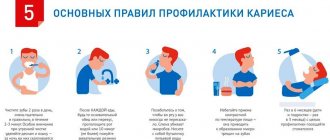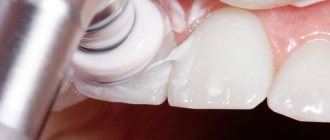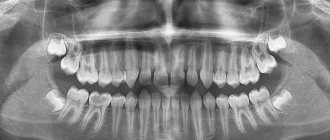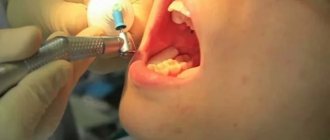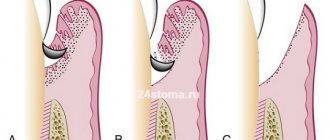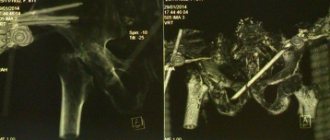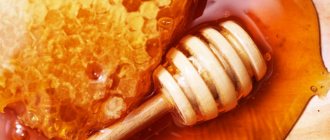The best protection against STIs is careful selection of sexual partners. If there are problems with this, a condom is required. Although it does not give a 100% guarantee, because it may break. Also, the risk of STDs will remain with foci of infection in open areas of the body.
Timely prevention after such contact will prevent infection. In severe cases, you will need to take strong antibiotics to stop the growth of bacteria. The type and duration of treatment is selected by the doctor based on test results.
What is Chlorhexidine used for?
An aqueous solution is prescribed to be taken in the following cases:
- cervical erosion;
- for the prevention of syphilis, genital herpes and other vaginal diseases;
- disinfection of dentures, disinfection of wounds;
- various diseases of the oral cavity.
An alcohol solution is used to treat hands and medical devices before surgery. The solution is also used to treat the working surface of medical equipment.
Vaginal suppositories are effective for the following conditions:
- in order to prevent infections that can be transmitted as a result of unprotected sexual intercourse;
- bacterial vaginosis;
- prevention of inflammation and infections before surgery, childbirth or abortion.
Medicines against STDs
There are no universal pills that will save you from any type of sexually transmitted infections. Therefore, the choice of preventive measures should be made by a doctor. Vaccinations are used against viruses that cause HPV, hepatitis B or genital herpes. Personal intolerance to the components of the vaccine is possible.
The option is suitable for STI insurance, but not for emergencies. After a casual relationship, medication may be required. Prevention or treatment should be given to both partners to prevent re-infection and spread of sexually transmitted diseases.
How to use Chlorhexidine in gynecology
The product is actively used to prevent sexually transmitted diseases. No later than 2 hours after unprotected intercourse, you need to take the solution. Men will need to insert 2 ml into the urinary canal, and women will need to insert 2 ml into the urinary canal and another 5-7 ml into the vagina. It is recommended to wipe the skin around the genitals with the solution. The instructions say that after using the drug you need to wait 2 hours before urinating. Otherwise, the effect of use will be less.
For preventive purposes, vaginal suppositories can be used.
Before using the product for thrush and other gynecological pathologies, you should consult a specialist in advance.
Disinfectants
- Chlorhexidine or Miramistin. Designed to prevent damage to mucous membranes by STDs. For men, the kit includes a special attachment. Women are recommended to use douching.
- Hexicon. Suppositories for women, active ingredient – chlorhexidine. The product will provide protection against gonococci, herpes virus, chlamydia, streptococci, E. coli and staphylococci. Not suitable for prophylaxis in patients with high sensitivity to chlorhexidine.
- Betadine. These are vaginal suppositories with povidone-iodine. Needed to protect against fungi, viruses and bacterial diseases that are sexually transmitted. The drug is not addictive, is poorly absorbed into the blood, and there are few contraindications. Prophylaxis is not recommended for iodine sensitivity and thyroid dysfunction.
The listed measures to prevent various STIs only reduce the likelihood of infection by 2-3 times, but do not provide a guarantee. Therefore, emergency treatment should be carried out in rare cases, and not become part of a regular ritual. Infection can be detected as early as day 3, so don’t delay going to the doctor.
Antiseptic drugs should not be used too often, such prevention will only do harm. Disinfecting compounds destroy both STD pathogens and beneficial bacteria, leading to an imbalance. To restore it, additional treatment will be required; without this, the risk of STDs will increase several times.
Contraindications and adverse reactions
Taking the drug is contraindicated in the following cases:
- increased susceptibility to the components included in the composition;
- patients with dermatitis;
- simultaneous use with other antiseptics, for example, hydrogen peroxide;
- in ophthalmology for washing the eyes.
It is better to refrain from using the product to disinfect the surgical field before or after surgery on the central nervous system and auditory canal.
In pediatrics, the drug is used with great caution.
Some patients may experience undesirable reactions such as:
- dry skin;
- allergic skin rashes;
- itching of the skin;
- light sensitivity.
With prolonged use of the product in dentistry, changes in taste may occur, tartar may appear, or teeth may become stained.
Antibiotics
- Ticarcillin, Oxacillin and Ampiox. These are drugs of the penicillin group that are used to treat syphilis. Medicines dissolve quickly in the stomach, which is why they are often prescribed as injections into a vein or muscle.
- Sumamed, Azithromycin, Erythromycin. Used if the STI cannot be eradicated with penicillin. Macrolides are effective against syphilis, chlamydia and gonorrhea, and have few contraindications and side effects. To combat sexually transmitted infections, they are prescribed in the form of tablets or injections.
- Ceftriaxone, Ceftaroline, Cefixime and Cefpirome. Antibiotics work against a number of STDs: gonorrhea, pathogens and syphilis. Cephalosporins have a strong effect, prevention with their help is carried out under strict control. Injections are prescribed to treat STIs.
- Ofloxacin and Norfloxacin. Used for the prevention and treatment of chlamydia and gonococci. The drugs are suitable for long-term use and have several release forms. They are included in the treatment regimen for varying severity of STDs.
- Oxytetracycline, Tetracycline and Doxycycline. Powerful antibiotics that have a toxic effect on the body. Rarely prescribed for prophylaxis. They are used only in cases of severe STDs, when drugs from other groups have not helped. They fight complicated gonorrhea, syphilis and chlamydia. Treatment of STIs with these drugs can cause increased intracranial pressure, severe allergies, and digestive problems. For this reason, they are administered only intravenously.
- Orinidazole, Metronidazole. Used for the prevention and treatment of trichomoniasis. Their toxicity is assessed as moderate. Suitable for the comprehensive fight against STDs, they are available in the form of suppositories and tablets.
- Gentamicin, Nemicin, Spectomycin and Amikacin. Administered intramuscularly. Needed for the prevention of gonorrhea and treatment of latent STDs. Also used to eliminate severe forms of sexually transmitted diseases.
Prevention after an unprotected act does not exceed 7 days. The duration is selected by the doctor depending on the type of STI and the severity of the lesion. All antibiotics have a negative effect on the body. Therefore, their use is combined with the use of antifungal drugs. If there are problems with digestion, probiotics are additionally prescribed.
Where to go?
It is best to go to a dermatovenereal dispensary or a specialized medical center, where you can get advice from a dermatovenerologist. The fact is that gynecologists, urologists, and family doctors can deal with STIs, but so far in our country there are no unified concepts for the treatment of STIs. And they are best mastered and supported by practice in specialized medical institutions.
Antifungal agents
When having unprotected sex, you need to take care to prevent candidiasis. The disease may not cause severe discomfort in the early stages. But it cannot be ignored; advanced forms of thrush lead to serious consequences. The following medications are used to prevent STDs:
- Fluconazole. In one go, it destroys all STI pathogens. It is used to treat different degrees of the disease; in this case, the dose and duration of therapy are selected individually. It has side effects and can cause hallucinations if taken for a long time.
- Pimafucin. It has different release forms, suitable for both partners. It has few negative effects and is prescribed to pregnant and nursing mothers for the treatment of STIs. Personal intolerance to the components of the drug is possible.
- Nystatin. Available in the form of tablets, ointments and suppositories. Used in small doses to prevent STDs. During therapy, it is prescribed to both partners, even if the pathogen is detected in one.
- Diflucan. It has a strong effect, even works against chronic conditions. Kills fungi of various origins, prescribed with caution. Cannot be taken with certain medications. Use for kidney and heart diseases is prohibited, and is not prescribed to pregnant and lactating women. Side effects are rare.
- Terzhinan. Produces a combined effect: kills fungi and pathogenic microbes. Available in the form of vaginal tablets. Suitable for prevention, has few negative consequences. Under medical supervision, it can be taken during pregnancy and lactation.
Be careful: all information is provided for informational purposes only! Tablets for sexually transmitted diseases are prescribed by a doctor after an examination; uncontrolled use will lead to negative consequences. Do not self-medicate STIs; contact an MLC specialist for an accurate diagnosis.
Before prescribing the drug, the doctor will recommend tests to identify the pathogen. Without this, it will not be possible to choose the right medications and prevent the development of the disease. STIs are dangerous and can be easily transmitted to sexual partners. Therefore, do not forget about protective measures, and in case of unsafe contact, do not hesitate to carry out prevention.
Drug prevention of sexually transmitted diseases
Emergency drug prevention of sexually transmitted diseases
includes the use of local antiseptics and systemic drugs.
Which destroy the corresponding pathogenic microorganisms.
Local means for drug prevention
Local agents belong to the pharmacological group of antiseptic drugs.
They affect any type of pathogenic microorganisms, leading to their death.
chlorhexidine for the prevention of sexually transmitted diseases
Chlorhexidine is often used to prevent sexually transmitted diseases.
It is an antiseptic solution.
Which is applied to the external genitalia after urination (urine mechanically flushes pathogenic microorganisms from the mucous membrane of the urethra) and their toilet with detergents for intimate hygiene.
The genitals can be treated with a cloth soaked in a 0.05% chlorhexidine solution or rinsed in a vessel filled with the solution.
This remedy can be combined with the drug Miramistin, which significantly increases the effectiveness in destroying various pathogenic microorganisms.
It is important to carry out such preventive treatment of the genital organs with local antiseptics for a period of time no more than 2 hours after unprotected sexual intercourse.
After casual sexual intercourse, you should immediately wash your genitals and the skin around them with warm water and soap.
After this, wipe the skin with a towel and disinfect it, as well as the mucous membranes, with an antiseptic solution.
Along with external treatment of the genitals, it is necessary to inject the solution into the urethra - for this, the tip equipped with an antiseptic bottle is inserted into the urethra and a few (5-10 ml) of the solution are poured.
After that, pinch the gap with your fingers for 1-2 minutes, after which the solution is released out by gravity.
This treatment reduces the likelihood of developing bacterial and fungal sexually transmitted infections - ureaplasmosis, chlamydia, gonorrhea, syphilis, and thrush.
However, it does not protect against infection with Trichomonas and viruses.
To prevent them, other preventive measures are necessary.
Betadine suppositories are used as intravaginal means of emergency prevention of sexually transmitted diseases, which have a complex antibacterial and antifungal effect.
Tablets for the prevention of sexually transmitted diseases
Drug prevention includes the use of systemic drugs in the form of tablets or solution for parenteral administration (injection).
These medications include antibiotics, antiherpetic medications, HIV prevention medications, and anti-trichomoniasis medications.
For more reliable prevention of the development of sexually transmitted diseases and STDs, systemic medications are used - antibiotics, antiviral and antiprotozoal agents.
In most cases, the preventive pharmacotherapy program involves taking broad-spectrum antibiotics, antiviral drugs (Panavir) along with immunomodulators (Immunomax, interferon and its analogs) and anti-trichomoniacal drugs (Trichopol, metronidazole and their analogs).
Pharmacies sell a special, ready-made set of tablets that provide a complex antimicrobial effect on the body for the purpose of preventive treatment of sexually transmitted infections.
External treatment of the genitals makes sense only in the first few hours after sexual intercourse; at a later date it becomes meaningless.
Systemic administration of drugs can be effective in the first two days after intimate intercourse; then the drugs will not suppress an already developed infection.
If it is impossible or unwilling to carry out antiseptic treatment of the genitals on your own, you can contact special medical centers that provide emergency prevention services for sexually transmitted diseases.
There, the doctor will examine the patient on a gynecological chair, treat the genitals with antiseptic solutions and medications, and also prescribe a preventive treatment regimen that will prevent the development of diseases.
After this, the doctor will provide the patient with a sterile gauze pad, which he will put in his underwear to prevent contact of the already treated genitals with underwear, which may contain pathogenic microbes.
It should be noted that none of the local antiseptic drugs can provide protection against viral infection.
Therefore, preventive methods are aimed only at reducing the activity of the virus and stimulating the body’s natural immune defense mechanisms, with the help of which it can suppress the infectious pathogen at its roots.
To prevent the occurrence of viral infections, systemic antiviral drugs are prescribed.
As well as pharmacological agents that increase the body’s resistance to infections (immunomax, panavir, interferon and its derivatives, plant adaptogens - echinacea tincture, ginseng extract, eleutherococcus, leuzea, Chinese lemongrass, etc.).
It is precisely because of the different means for prevention that there is no single injection or pill.
They are used only as prescribed by a venereologist:
- If you suspect sexually transmitted infections or are at high risk of infection
- after identifying a bacterial venereological pathology (chlamydia, gonorrhea, ureaplasmosis, mycoplasmosis, syphilis) in a sexual partner no later than 2 days after unprotected sex.
After completion of preventive drug therapy, which lasts 1-2 days, or prophylaxis with local antiseptics, it is advisable to conduct a control laboratory test to exclude a venereal disease.
It is not advisable to take tests for STDs immediately after casual sex, since the results will be unreliable.
It makes sense to undergo an examination after 7-10 days; as a rule, this period is sufficient to complete the incubation period and informative laboratory diagnostics.
If urogenital infections are detected, the doctor will immediately prescribe the necessary treatment, including taking antimicrobial drugs along with symptomatic medications.
For guaranteed highly effective prevention of sexually transmitted diseases, contact the author of this article - a venereologist, urologist in Moscow with 15 years of experience.

